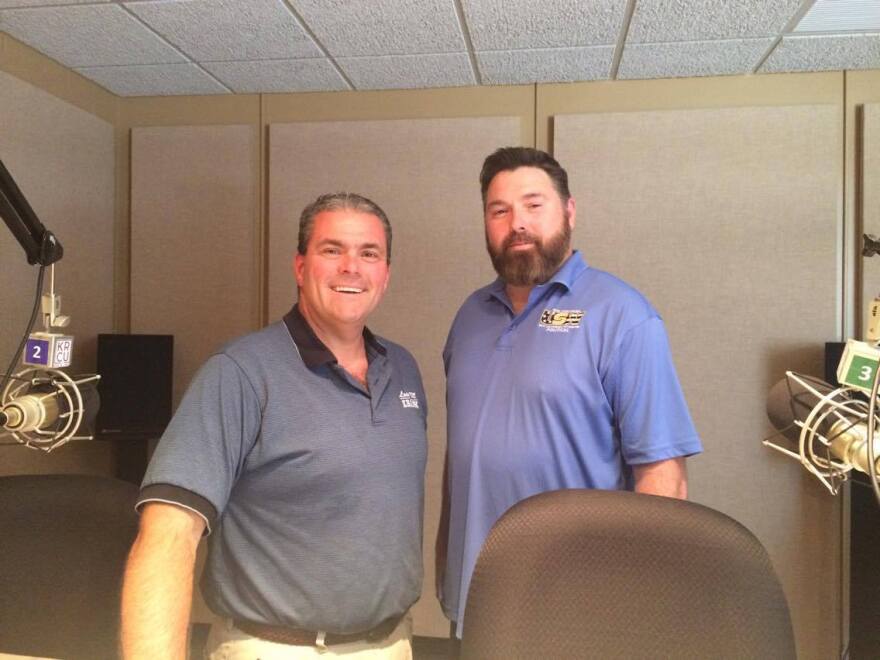Labor unions are still pushing back against Missouri’s right-to-work law, which is set to go into effect on August 28. The latest efforts to block the controversial legislation is through a petition that Mark Baker, a business representative for the International Brotherhood of Electrical Workers and Cameron Redd, who works for the United Steelworkers International say has a good chance of putting right-to-work back on the ballot in 2018.
INTERVIEW HIGHLIGHTS
On what the petitioning is and how it works
Redd: Our petition is to get this issue on the ballot for 2018. If we are successful, which we believe we will be, it prevents this law from taking effect on August 28. And every registered Missourian will have a chance to vote on this issue in the next election. It's a very big deal and we think that the people should have the final say on this, not the politicians in Jefferson City. We think the people ought to have the final say and that's what the petition's about and that's what it does.
Redd: The law says to get a ballot initiative to be successful you need five percent of the total amount of votes cast in the prior gubernatorial election. And you need that five percent spread out over two-thirds of the congressional districts in the state of Missouri. So for us we have eight. So we need to qualify in six of eight districts.
On the common argument that this legislation does not benefit the worker
Baker: Well from my perspective, I think the first question or comment that I would offer somebody is take a look at who's sponsoring this legislation, who is supporting it, who is advocating for it, who is testifying in favor of it. It's not any of the labor unions who by the way are a business, and whether we like it or not they have to stay solvent. They have to make financial decisions everyday. But historically these people: the chamber of commerce's that support these right to work laws, they're not looking out for the blue color worker, the people that put in their 8, 10, 12 hours a day. They're sponsored on the American Legislative Exchange Council, the Koch brothers, out of state out of touch well funded groups. And I think that's where people should really take a good hard look at who's pursuing it. Who's benefiting from it. I think you need to step back and be careful to vote on one particular issue. I'm guilty of it myself. But I try to protect my pocketbook at first, and then I'll donate the money that I make to other worthy social charitable causes. The challenge is to get people to understand what their best interest is.
Baker: There's a book out called "What's the Matter with Kansas?," written several years ago. And it really examines the issue of why do people sometimes vote against their best interest. And I think it's about misdirection. It's about misleading. It's about taking people away from what really matters to them. When you want to talk about a certain issue that may or may not ever affect somebody personally, but you can get them emotionally charged up over it that I think that's where they're trying to succeed. I mentioned back in February here in Missouri the private sector is roughly around eight percent unionized. The reflection or the curiosity was this law would essentially affect about eight percent of the represented workforce here in the state of Missouri. So why was it such a big deal? Why was it pursued so hard? And I think through this petition signature gathering, we've discovered a lot of people that aren't in unions come up to sign these petitions because they understand the unions, although they may not be perfect, they are the perfect vehicle for working families whether they're in a union or not.
Missouri became the 28 right-to-work state earlier this year when Gov. Eric Greitens signed the controversial legislation it into law.




